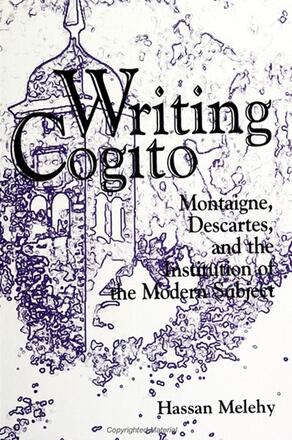
Writing Cogito
Montaigne, Descartes, and the Institution of the Modern Subject
Alternative formats available from:
Combines literary theory and history with detailed textual analysis in order to consider a question that involves both literature and philosophy, namely, the foundation of the human subject.
Description
Combining literary theory and history with detailed textual analysis, Melehy examines a series of events at the outset of modernity involving both literature and philosophy. Through the work of Michel de Montaigne and Rene Descartes, Melehy considers the question of the foundation of the human subject, in the context of contemporary debates in literature and philosophy. Montaigne, through writing, examines the many possibilities of subjective experience, and finds that the subject takes shape in writing. Descartes comes to the subject in search of a principle to circumvent the uncertainty of language--"I think, therefore I am," the cogito. But Descartes, Melehy shows, must continually depend on literary devices, on the properties of language whose effects he is so eager to escape--also deploying the devices to disguise the fact that they permeate his work.
Hassan Melehy is Visiting Assistant Professor in the Department of Romance Languages at the University of Vermont.
Reviews
"By carefully probing the Cartesian text, Melehy exposes the cunning ways in which Descartes, in order to fix the notions of 'modernity' and 'subjectivity,' conceals the extent to which his own work is grounded in Montaigne's. Melehy demonstrates why it was crucial for Descartes that his work be defined as philosophy and that Montaigne's be defined as literature. Furthermore, he demonstrates why this arbitrary and in many ways invalid distinction has become an unquestioned principle in the 'modern' institution whose function it is to organize knowledge, i.e., the university. This book is brilliantly conceived and executed." -- Robert D. Cottrell, Ohio State University
"When Melehy deals with passages that have frustrated scholars for centuries he often allows himself to be extremely creative--at times, quite poetic. I admired his elucidation of the logic and value of Montaigne's ubiquitous Latin quotations as well as many pages on Descartes and the cogito. Informed by the thought of scholars postmodern and modern, Melehy's personal reading and commentary on Montaigne's and Descartes' texts bring forth new and all-important insights on the institution of the modern subject." -- Elisabeth Caron, Indiana University North